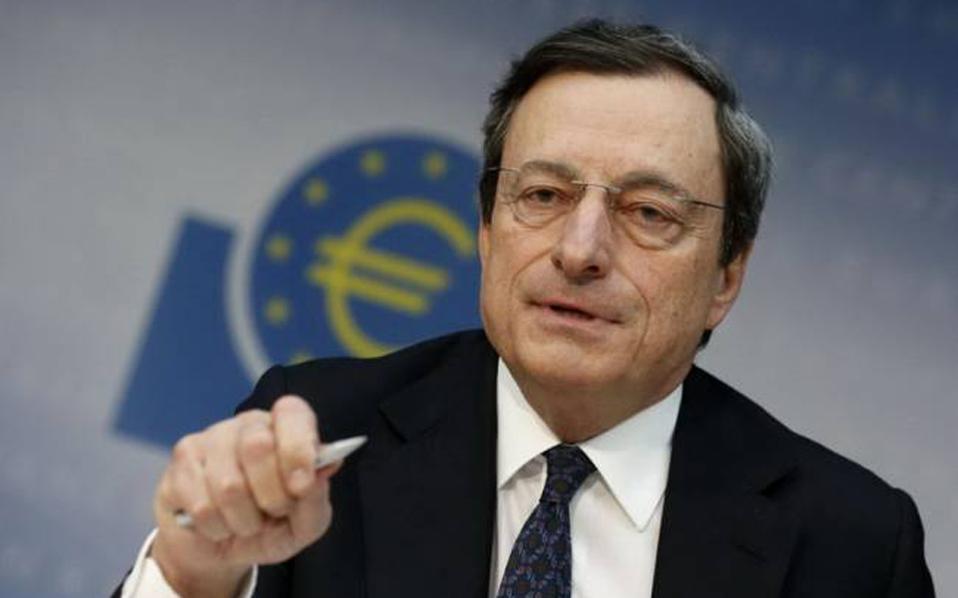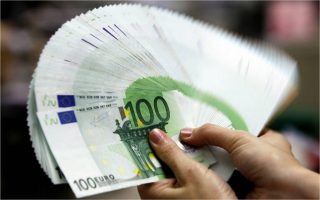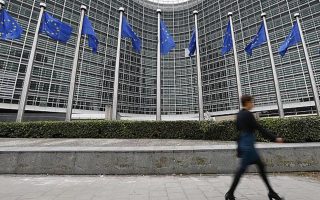Draghi returns as face of euro scarred by Brussels brinkmanship

Mario Draghi will reprise his role on Thursday as the public face of Europe’s single currency — in the same week that it almost fell apart.
The European Central Bank president has spent months keeping the euro area intact with emergency aid for Greek lenders even as the nation headed for a default. While his strategy bought enough time for battling governments to finally reach a bailout agreement in Brussels on Monday, now approved by Greece’s parliament, the trauma left scarsMario Draghi will reprise his role on Thursday as the public face of Europe’s single currency — in the same week that it almost fell apart.v that may never fade.
When Draghi speaks to reporters in Frankfurt after his Governing Council’s policy meeting, he’ll be quizzed on when and how the ECB will support the reopening of Greece’s shuttered banks. A fundamental change since the last briefing six weeks ago, when he said the ECB wanted the nation to stay in the euro, is that some of the region’s most senior politicians are signaling the bloc could have, and perhaps should have, lost a member for the first time.
“The Grexit talk has broken a taboo; no amount of words will get the genie back into the bottle,” said Alexander Privitera, director at the American Institute for Contemporary German Studies at Johns Hopkins University in Washington. “Negotiating a bailout with the possibility of exit from the monetary union on the table makes the currency union reversible.”
Greek approval
The ECB will announce its interest-rate decision at 1:45 p.m. Frankfurt time, with economists in a Bloomberg survey forecasting the benchmark rate will be kept on hold at a record- low 0.05 percent. The prime topic when Draghi holds his press conference 45 minutes later though will probably be Greece.
After more than four hours of debate stretching into the early hours of Thursday, Greek lawmakers passed new austerity measures that are a precondition of as much as 86 billion euros ($94 billion) in aid.
Even so, the parliamentary approval more than two weeks after the previous bailout expired, and after the country imposed capital controls, can’t change the fact that Greece came within a whisker of having to leave the 19-nation currency club.
Europe has “a Grexit scenario prepared in detail,” European Commission President Jean-Claude Juncker said on July 7 after Greek voters rejected a bailout proposal in a referendum. Germany’s finance ministry produced a one-page paper of scenarios that included Greece being suspended from the single currency for five years, and German Vice Chancellor Sigmar Gabriel gave qualified support to the proposal.
Draghi critics
Even ECB Executive Board member Benoit Coeure said last month that a Greek exit can’t be ruled out. That’s a significant shift for the ECB from September 2012, when Draghi warned investors not to bet on the breakup of the euro area, and that the central bank would do what it takes to keep the bloc whole.
“We say that the euro is irreversible,” Draghi told reporters in Frankfurt then. “So unfounded fears of reversibility are just what they are — unfounded fears.”
Draghi’s critics say he’s gone too far to defend that position, bending the ECB’s rules to the point that the institution’s credibility has been undermined. The Emergency Liquidity Assistance that the Greek central bank provides to the nation’s lenders, with the approval of the ECB, has risen even with their solvency in doubt.
Near death
ELA has been capped at 88.6 billion euros since June 23. That’s up from 59.5 billion euros in February, when the ECB withdrew its standard refinancing lines in response to newly elected Greek Prime Minister Alexis Tsipras’s rejection of the country’s bailout terms.
The ECB “clearly overstepped its mandate,” Clemens Fuest, president of Germany’s ZEW Center for European Economic Research said this week. “It increased the cost of the crisis.”
While Greece has pulled back from the brink for now, plenty of pitfalls remain. European leaders must find bridge financing to ensure the country doesn’t miss a 3.5 billion-euro debt repayment to the ECB on July 20. The bailout must be approved in several euro-area parliaments, including Germany’s. Capital controls could remain in place for months.
“There are many intermediate steps between death and robust health,” said Francesco Papadia, chairman of Prime Collateralised Securities and a former director general of the ECB’s market operations. “When you say that the risk of a demise of the euro has receded, it doesn’t mean all is well.”
Draghi may use his press conference to reiterate his view that the Greek crisis exposed the weakness of the single currency’s institutional set up, and that Europe needs to make a “quantum leap” in integration.
“Last weekend was pretty unedifying and pretty depressing for people who think Europe should integrate further,” Stephanie Flanders, chief market strategist for Europe at JPMorgan Asset Management, said in London. “In the long term, the way this agreement was reached will have some cost for Europe’s standing with international investors.”
[Bloomberg]





